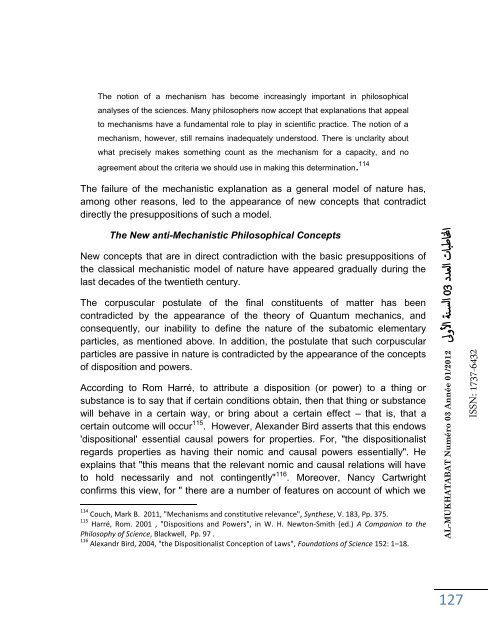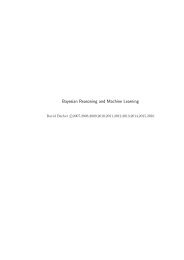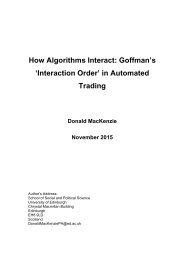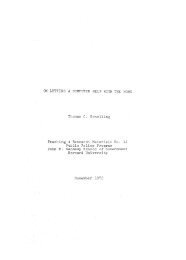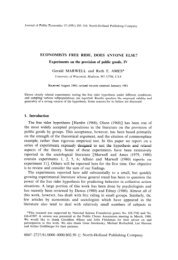n3-al-mukhatabat-journal
n3-al-mukhatabat-journal
n3-al-mukhatabat-journal
Create successful ePaper yourself
Turn your PDF publications into a flip-book with our unique Google optimized e-Paper software.
The notion of a mechanism has become increasingly important in philosophic<strong>al</strong><br />
an<strong>al</strong>yses of the sciences. Many philosophers now accept that explanations that appe<strong>al</strong><br />
to mechanisms have a fundament<strong>al</strong> role to play in scientific practice. The notion of a<br />
mechanism, however, still remains inadequately understood. There is unclarity about<br />
what precisely makes something count as the mechanism for a capacity, and no<br />
agreement about the criteria we should use in making this determination. 114<br />
The failure of the mechanistic explanation as a gener<strong>al</strong> model of nature has,<br />
among other reasons, led to the appearance of new concepts that contradict<br />
directly the presuppositions of such a model.<br />
The New anti-Mechanistic Philosophic<strong>al</strong> Concepts<br />
New concepts that are in direct contradiction with the basic presuppositions of<br />
the classic<strong>al</strong> mechanistic model of nature have appeared gradu<strong>al</strong>ly during the<br />
last decades of the twentieth century.<br />
The corpuscular postulate of the fin<strong>al</strong> constituents of matter has been<br />
contradicted by the appearance of the theory of Quantum mechanics, and<br />
consequently, our inability to define the nature of the subatomic elementary<br />
particles, as mentioned above. In addition, the postulate that such corpuscular<br />
particles are passive in nature is contradicted by the appearance of the concepts<br />
of disposition and powers.<br />
According to Rom Harré, to attribute a disposition (or power) to a thing or<br />
substance is to say that if certain conditions obtain, then that thing or substance<br />
will behave in a certain way, or bring about a certain effect – that is, that a<br />
certain outcome will occur 115 . However, Alexander Bird asserts that this endows<br />
'disposition<strong>al</strong>' essenti<strong>al</strong> caus<strong>al</strong> powers for properties. For, "the disposition<strong>al</strong>ist<br />
regards properties as having their nomic and caus<strong>al</strong> powers essenti<strong>al</strong>ly". He<br />
explains that "this means that the relevant nomic and caus<strong>al</strong> relations will have<br />
to hold necessarily and not contingently" 116 . Moreover, Nancy Cartwright<br />
confirms this view, for " there are a number of features on account of which we<br />
114 Couch, Mark B. 2011, "Mechanisms and constitutive relevance", Synthese, V. 183, Pp. 375.<br />
115 Harré, Rom. 2001 , "Dispositions and Powers", in W. H. Newton-Smith (ed.) A Companion to the<br />
Philosophy of Science, Blackwell, Pp. 97 .<br />
116 Alexandr Bird, 2004, "the Disposition<strong>al</strong>ist Conception of Laws", Foundations of Science 152: 1–18.<br />
AL-MUKHATABAT Numéro 03 Année 01/2012 لىولأا ةن سلا 30 ددعلا تابطانا<br />
127<br />
ISSN: 1737-6432


